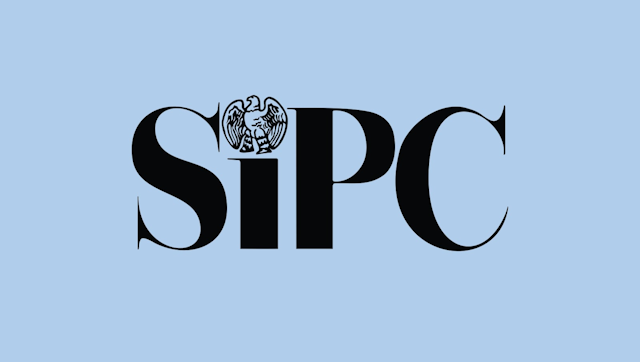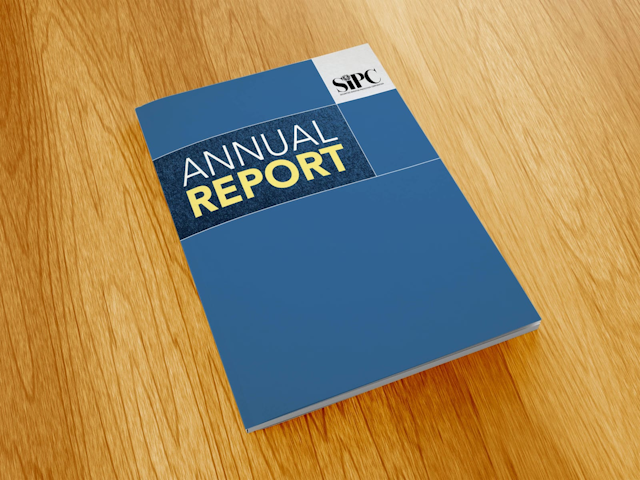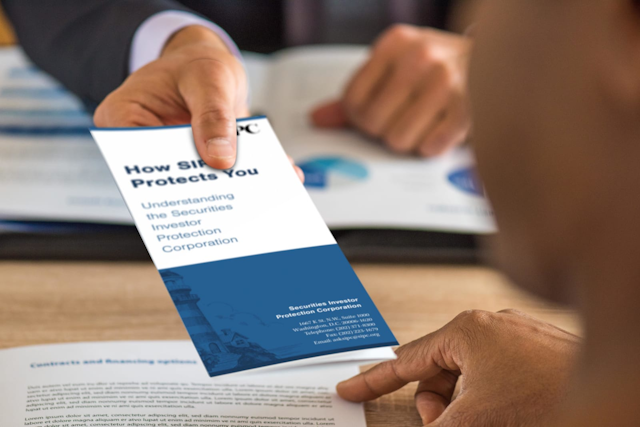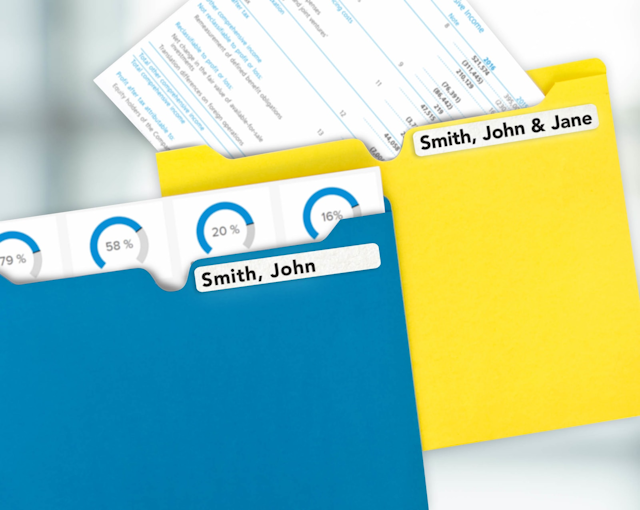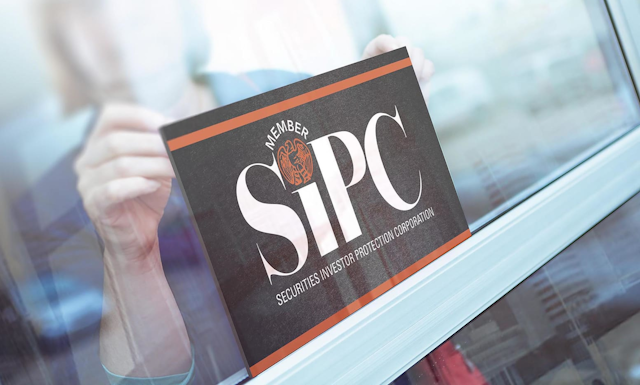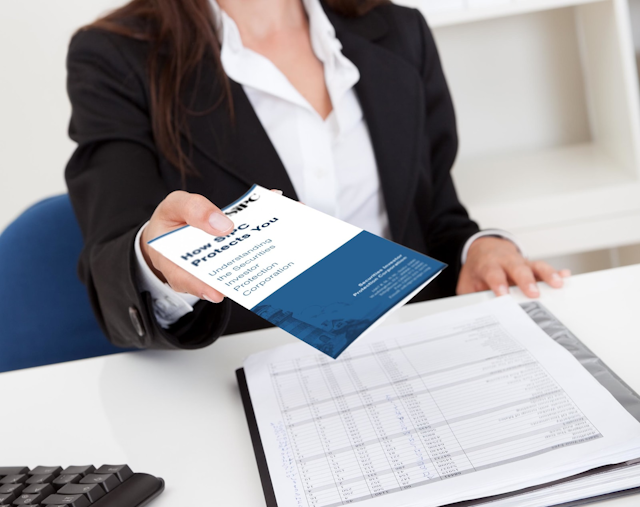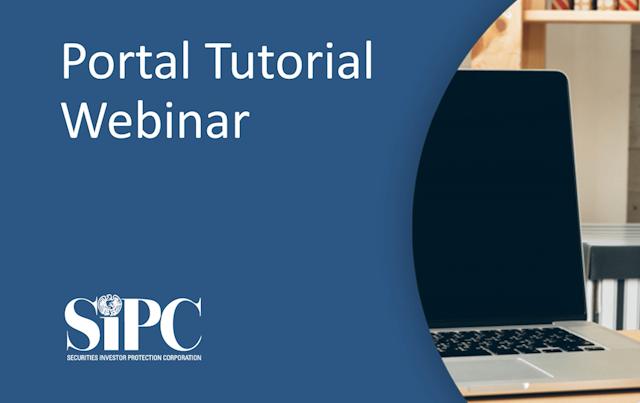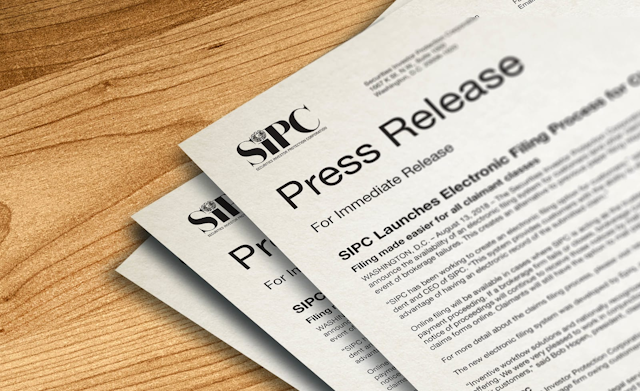General Questions
Can I get a refund of overpaid assessments?
The Securities Investor Protection Act provides that overpayments shall be recoverable only against future assessments due, except as otherwise provided by bylaw. SIPC Bylaw Article 6 permits refunds of amounts in excess of $150 to terminated members who have satisfied all filing requirements.
How do I become a SIPC member?
All registered brokers or dealers, by law, automatically become SIPC members, except for the following, who may be excluded from SIPC membership:
(i) persons whose principal business, in the determination of SIPC, taking into account business of affiliated entities, is conducted outside the United States and its territories and possessions;
(ii) persons whose business as a broker or dealer consists exclusively of (I) the distribution of shares of registered open end investment companies or unit investment trusts, (II) the sale of variable annuities, (III) the business of insurance, or (IV) the business of rendering investment advisory services to one or more registered investment companies or insurance company separate accounts; and
(iii) persons who are registered as a broker or dealer pursuant to 15 U.S. Code section 78o(b)(11)(A) - broker/dealer registration with respect to transactions in security futures products. See SIPA section 78fff(a)(2)(A) and form SIPC-3.
How do I refile an assessment form due to an error in calculation?
Broker-Dealers must file amended assessment forms (the SIPC-6A or SIPC-7A) electronically through the SIPC Portal. If you need to file an amended form but don’t have access to the SIPC Portal, please contact SIPC’s Membership Department by phone at 202-371-8300 or send an email to portal@sipc.org.
How do I terminate my SIPC membership?
To terminate the broker-dealer registration and SIPC membership, a completed broker-dealer withdrawal form (Form BDW) must be filed with the Central Registration Depository (CRD). The “effective withdrawal” usually is 60 days after the CRD receives and accepts the filing, and on that date SIPC membership would terminate. Note that SIPC may still initiate a liquidation proceeding up to 180 days after the effective date of the BDW.
I have no revenue during the reporting period, should I put zeros in the revenue and assessment section and file the form?
Yes.
Is there a review process if a SIPC member has questions about or wishes to challenge an assessable item?
Yes. Address all questions or concerns to the Membership Department, and provide documentation regarding any challenged assessable item. We will advise you of the outcome of our review.
My firm has no public customers, why do I have to be a member?
When Congress passed the Securities Investor Protection Act, it made all SIPC members subject to its provisions, including the obligation to pay assessments into the SIPC Fund. The objective was to instill confidence in the investing public and to place the financial support of the SIPC program on all firms that made their livelihood in the securities business, regardless of whether they had public customers or not. This includes SIPC member firms generating revenue from non-customer activities such as investment banking, raising money for private equity or hedge funds, financial advisory services, equity research, or other activities related directly or indirectly to the securities business.
What assessment forms need to be filed and what are their due dates?
Form SIPC-6, filed for the first six months of each member’s fiscal year, is due 30 days after the period which it covers. Please note that there is no grace period for late receipt of payments when filing through the portal.
Form SIPC-7, filed at the end of each member’s fiscal year, less the assessment paid with the Form SIPC-6, is due 60 days after the fiscal year-end (FYE). (Assessment Rate is 0.0015). Please note that there is no grace period for late receipt of payments when filing through the portal.
Any deduction on line 4h (formerly 2c(8)) for other revenue not related either directly or indirectly to the securities business, in excess of $100,000, must be accompanied by documentation.
Once granted access to the SIPC Portal, SIPC members are required to file their assessment forms through the Portal. No forms will be accepted by mail or e-mail. Please note that there is no grace period for late receipt of payments when filing through the portal.
Are the proceeds of forgiven Paycheck Protection Program (PPP) loans assessable under the Securities Investor Protection Act (SIPA) and SIPC’s Bylaws?
No, Forgiven PPP loans do not constitute assessable revenue under the assessment provisions in SIPA and SIPC’s Bylaws. Please deduct the proceeds of forgiven PPP loans included in Total Revenue (FOCUS Code 4030) on line 2c(8) (other revenue not related either directly or indirectly to the securities business). If the amount deducted is in excess of $100,000, please submit a copy of the forgiveness letter with your assessment form.
Is bank sweep program revenue assessable? Specifically, is revenue received by a member with respect to a credit balance held at another financial institution pursuant to a Sweep Program, as defined in Securities and Exchange Commission Rule 15c3-3(a)(17) ("Sweep Program Balance"), assessed by SIPC?
Yes, bank sweep program revenue is assessable. Revenue received by a member with respect to a Sweep Program Balance constitutes “fees or other income” from the member’s securities business and therefore is subject to assessment under to SIPA § 78lll(9)(L) (available at: https://www.sipc.org/about-sipc/statute-and-rules/statute#78lll) and SIPC Bylaws Art. 6 §§ 1(a), 3(a)(iii), and 3(b)(ii) (available at: https://www.sipc.org/about-sipc/statute-and-rules/bylaws#6). Such revenue must be included in the amount reported on line 1 of the member’s Forms SIPC-6 and SIPC-7 and is not permitted to be deducted on line 4h (or any other line) of those forms.
Questions About Paying Assessments via ACH
How do I make an assessment payment via ACH?
SIPC members wishing to pay by ACH Debit (Present and Pay) will need to do so through the SIPC Portal. The ACH payment option is available each time there is a balance due. SIPC will no longer have an enrollment process or credentials outside of the SIPC Portal. Members who pay via ACH will be required to pay the total amount due; partial payments may not be made via ACH.
How do I submit my Assessment Form (SIPC-6 or SIPC-7) if paying via ACH?
SIPC members are required to file their assessment forms through the Portal. No forms will be accepted by mail or e-mail. Please submit your assessment form via the Portal. Once the SIPC Portal shows a balance due, you will be able to pay by ACH. If you have not yet received Portal access, please contact the Membership Department at 202-371-8300 or portal@sipc.org for access.
Is there a payment limit?
Yes. The payment limit is $999,999.
How much does it cost to make an assessment payment via ACH?
SIPC does not charge a fee to enroll in SIPC’s ACH program or to make assessment payments via an ACH transfer. However, your bank may charge fees for ACH payments.
Will I receive a receipt when I pay my assessment via ACH?
Yes. SIPC’s ACH system sends an automated email to the authorized person when a payment is initiated.
Questions about Annual Reports
Do I have to file a copy of my Annual Reports with SIPC?
All members of SIPC that are required to file Annual Reports with the SEC and their DEA pursuant to SEC Rule 17a-5(d)(1), 17 C.F.R. § 240.17a-5(d)(1), are also required to file their Annual Reports with SIPC. Annual Reports are due to SIPC when they are due to the Designated Examining Authority (i.e., FINRA) and the SEC according to SEC Rule 17a-5(d)(5) (no more than sixty calendar days after the end of the broker-dealer’s fiscal year).
How should I file the Annual Reports with SIPC?
Members that file Annual Reports with their DEAs through the FINRA Firm Gateway: Through an arrangement with FINRA, all members that file Annual Reports with their DEA through the FINRA Firm Gateway on and after September 1, 2017 will use the FINRA Firm Gateway to also file their Annual Reports with SIPC.
Members that do not file Annual Reports with their DEAs through the FINRA Firm Gateway:
SIPC members that do not file through the FINRA Firm Gateway will be provided with instructions.
When I file my Annual Report with FINRA what do I need to do to file it with SIPC?
Nothing additional. When an Annual Report is filed by a member through the FINRA Firm Gateway on or after 9/1/17, this will also constitute filing with SIPC. When filing through the FINRA Firm Gateway the FINRA site will indicate:
By submitting this report, [the firm] acknowledges that the filing of its Annual Report with FINRA (initial and amendments) also constitutes filing of the Annual Report with SIPC pursuant to SEC Rule 17a-5 if the firm is also a SIPC member.
If a DEA requires that I supplement or amend my filing what do I need to provide to SIPC?
Nothing additional. A supplemented or amended Annual Report requested by the DEA and filed through the FINRA Firm Gateway will be provided to SIPC.
I am exempt from the Annual Report filing requirement with my DEA. Do I need to do anything with SIPC?
Yes. Please send SIPC a portal message no later than sixty calendar days after the end of your fiscal year and advise that you are exempt from the Annual Report filing requirement. Please notify SIPC each year that you are exempt from the Annual Report filing requirement.
I received a filing extension from my DEA. Do I need to do anything with SIPC?
If you received a filing extension from your DEA, that extension also applies to your filing deadline with SIPC. SEC Release No. 34-91128, extends the deadline for certain smaller broker-dealers to file their annual reports by 30 calendar days. Members covered by SEC Release No. 34-91128 must notify SIPC in writing that they are relying on the Commission’s order and submit to SIPC a copy of the written notification provided to their DEA.
Can I use the FINRA Firm Gateway to file the Agreed-Upon Procedures (AUP) Report with SIPC?
No. The AUP Report must be filed directly with SIPC via the SIPC Portal. To submit an AUP Report, go to the “File Upload” tab, select Upload, under Category Select AUP Report, and select the appropriate Fiscal Year. Please upload a copy of the AUP Report even if this report was included with the filing made through the FINRA Firm Gateway.
Can I use the FINRA Firm Gateway to file my SIPC-6 or SIPC-7?
No. These forms must be filed directly with SIPC by submission through the SIPC Portal. If access has not yet been granted to the SIPC Portal, please contact the Membership Department at 202-371-8300 or portal@sipc.org.
Questions About the Agreed-Upon Procedures (AUP) Report Mandated by the Series 600 Rules
Do I need to file the "Independent Accountant's Report on Applying Agreed Upon Procedures Related to an Entity's SIPC Assessment Reconciliation," or "Claim of Exclusion from Membership" (AUP Report) in accordance with SEC Rule 17a-5(e)(4)?
SIPC members are required to file this report if total revenues are more than $500,000. SIPC-3 filers must file this report regardless of the amount of their total revenues. Examples of the required filings for SIPC members and SIPC-3 filers are available at Agreed-Upon Procedures (AUP) Reports.
How should I file the Agreed-Upon Procedures (AUP) Report?
The AUP Report must be filed directly with SIPC via the SIPC Portal. To submit an AUP Report, go to the “File Upload” tab, select Upload, under Category Select AUP Report, and select the appropriate Fiscal Year. Please upload a copy of the AUP Report even if this report was included with the filing made through the FINRA Firm Gateway.
Once the SIPC Series 600 Rules are effective, does the AUP Report have to be filed with the SEC?
No. The AUP Report must be filed with SIPC. Firms should no longer send it to the SEC.
When must the AUP Report be filed with SIPC?
The AUP Report must be filed within 60 days after the end of a broker-dealer’s fiscal year (or within 90 days after the end of a broker-dealer’s fiscal year for certain Broker-Dealers covered by SEC Release No. 34-91128.
When must an AUP Report be reissued?
In general, anytime a Form SIPC-7 is amended by a member subject to the AUP Report, another AUP Report should be reissued covering that amended filing.
I am a smaller broker-dealer covered by SEC Release No. 34-91128. I’ve notified FINRA that I wish to have an additional 30 calendar days for filing my annual report on an ongoing basis for as long as the firm meets the conditions in SEC Release No. 34-91128. Do I need to do anything with SIPC?
Yes. Members covered by SEC Release No. 34-91128 must notify SIPC in writing that they are relying on the Commission’s order and submit to SIPC a copy of the written notification provided to their DEA. Only one notification is required; Members do not need to re-notify SIPC for each subsequent year that the firm meets the conditions.
The procedure specified under (3)(i) of the rule requires the accountant to perform the following: "Compare assessment payments made in accordance with the General Assessment Payment Form (Form SIPC-6) and applied to the General Assessment calculation on the Form SIPC-7 with respective cash disbursements record entries." Does this procedure also include comparing any amount due in Form SIPC - 7 to supporting check/wire instructions?
Yes. The independent public accountant should compare any amount due in Form SIPC-7 to supporting check/wire instructions. The results of each procedure should include details relating to the source documents such as payment date and name and title or department who provided the information.
The procedure specified under (3)(ii) of the rule requires the accountant to perform the following: "For all or any portion of a fiscal year, compare amounts reflected in the audited financial statements required by an SEC rule with amounts reported in the Form SIPC - 7." In this procedure which "amounts" reflected in the audited financial statements should be compared with the Form SIPC-7?
Amounts from the audited financial statements that correspond with the itemized amounts reported in the Form SIPC-7 (for example, "Total Revenues") should be compared.
The procedure specified under (3)(iii) of the rule requires the accountant to perform the following: "Compare adjustments reported in the Form SIPC - 7 with supporting schedules and working papers supporting the adjustments." What "adjustments" are referenced in this procedure?
"Adjustments" refers to any additions and deductions in the line items reported in the Form SIPC-7.
The procedure specified under (3)(vi) of the rule requires the accountant to perform the following: "If exclusion from membership is claimed, compare the income or loss reported in the audited financial statements required by an SEC rule with the Form SIPC-3." What is required under this procedure?
The income reported in the financial statements should be compared to the "Schedule of Form SIPC-3 Revenues," provided by the broker dealer for their FYE attached with the Form SIPC-3 (filed for the broker-dealers' FYE) to ascertain that the Form SIPC-3 is consistent with the income reported. If exclusion from SIPC membership is claimed, the following is procedures are required:
- The accountant should thus compare the total amount included in the "Schedule of Form SIPC-3 Revenues," provided by the broker dealer for their FYE, to the total revenues reported on the audited financial statements for their FYE and note any differences. This schedule should accompany the (e)(4) report.
- The accountant should also compare each revenue classification reported in the Schedule of Form SIPC-3 Revenues prepared by the broker dealer for their FYE to supporting schedules and working papers noting any differences. The results of the procedure should include a description of the supporting schedules, working papers and/or source documentation prepared by the broker dealer.
- The accountant should also recalculate the arithmetical accuracy of the Total amount reflected in the Schedule of Form SIPC-3 Revenues prepared broker dealer for their FYE and in the related schedules and working papers, noting any differences. The results of the procedure should include a description of the supporting schedules, working papers, and source documentation prepared by the broker dealer.




